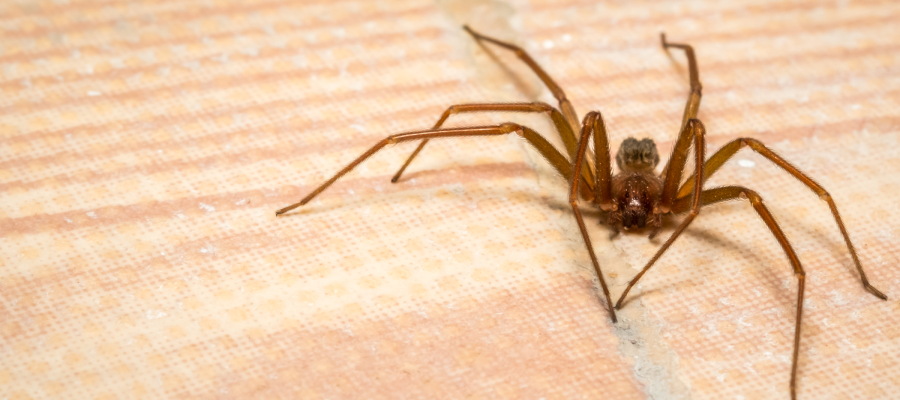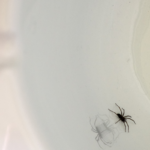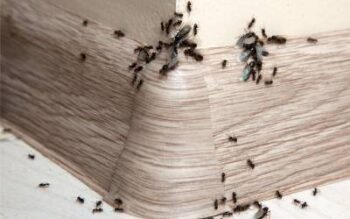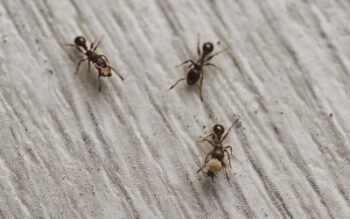
The brown recluse spider is one of the most poisonous spiders in our region, making it important to learn how to. Often called a fiddle-back spider because of its distinct violin-shaped marking on the body, the brown recluse spider inhabits basements, sheds, barns, and other dark places. There is a lot of fear surrounding these spiders, but the reality is that they have no interest in bothering people, let alone biting them. While rare, a bite from one of these spiders can be very dangerous, which is why it’s still important to keep your distance from brown recluses. The team at Blue Chip Pest Services is here to share everything you need to know about brown recluse spiders in St. Louis MO.
What do Brown Recluse Spiders Look Like?
The brown recluse spider is brownish-yellow, as the name suggests. It does not have any stripes or dots. The body of a fully-grown brown recluse spider may measure about 10 mm. Other key characteristics include:
- Violin shaped marking on the back
- Uniformly colored legs and bodies
- No distinct color variations
- Size of a quarter
Are Brown Recluse Spiders Dangerous?
Brown recluse spiders will bite if surprised or threatened. They gravitate toward dark places, preferring to build their webs in storage areas and within boxes and under furniture. If you’re cleaning out an old shed or basement, beware of getting a bite. This all said, brown recluses are generally reclusive—just as their name suggests. They will typically run away if they come into contact with you. A bite can happen if they are about to be crushed, as a defense mechanism.
Recluse Spider Bite Symptoms
You may never even know you were bitten by a recluse spider until you begin experiencing symptoms, and the symptoms are often confused for other illnesses. These include: fever, convulsions, itching, nausea and muscle pain. Sometimes these symptoms are misdiagnosed as Lyme’s disease. Other times, a bite is obvious. The site of the bite will swell and redden and may blister over. It’s possible in severe cases that a bite may result in painful, open wounds that are purplish black and do not readily heal.
Much of this depends on where on your body you got the bite and the amount of venom you contracted. Since the bites are not painful and could occur while you’re sleeping, it may go undetected until the fever and nausea surface. Seek medical attention immediately if you suspect you think you were bitten by a brown recluse spider.
Need Help With Spider Control?
No one wants to get close enough to a brown recluse spider to properly identify it. If you think you’ve spotted one near or in your home, or are dealing with a number of other spider problems, the spider control experts at Blue Chip can help. Contact us today to get started!






